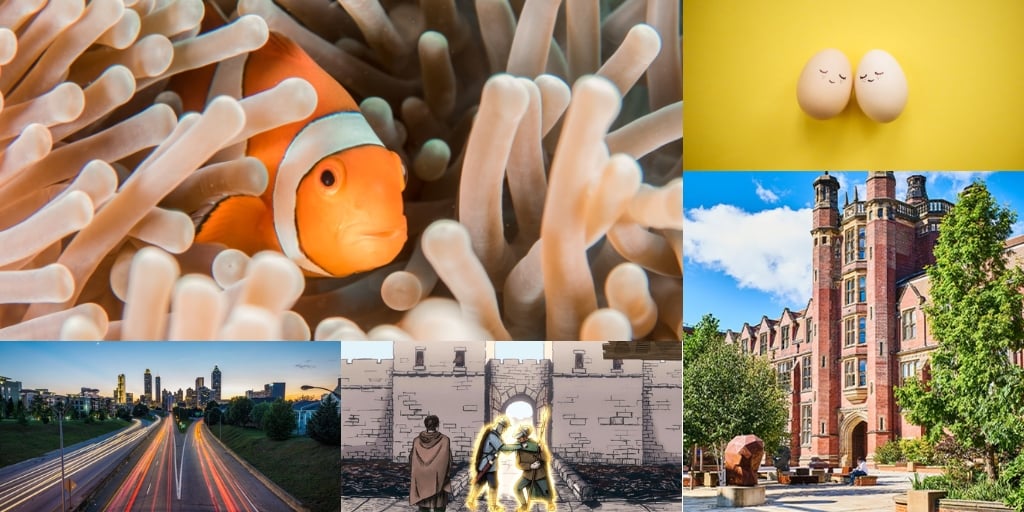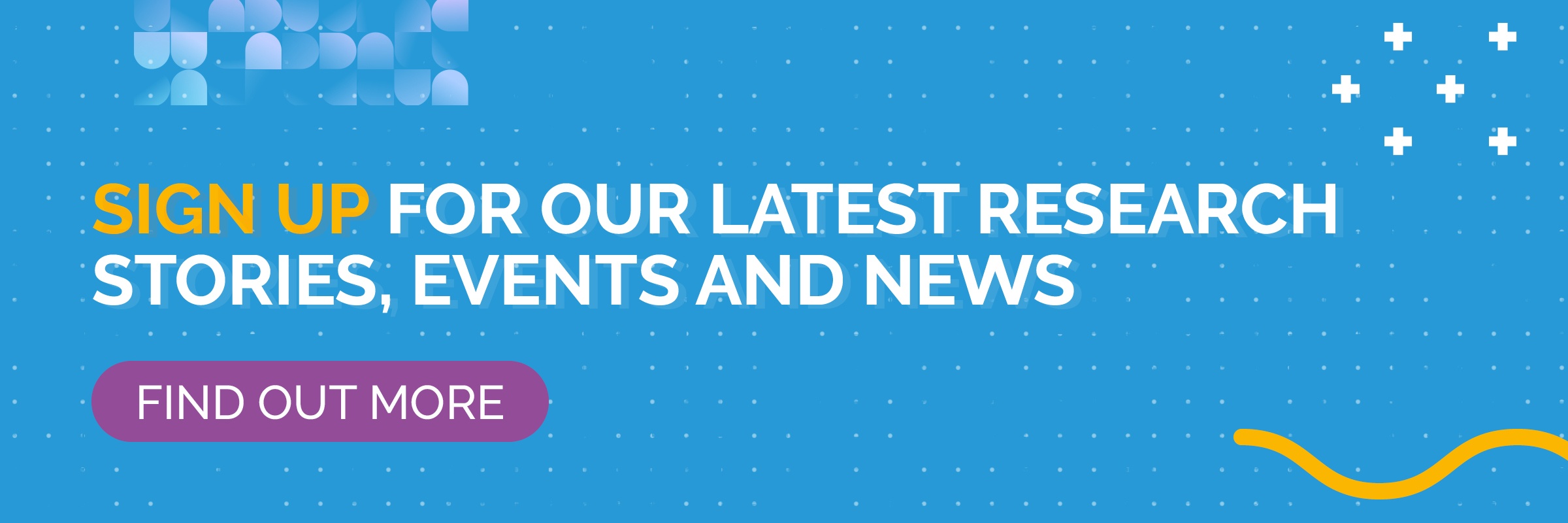At Newcastle University we're working hard to make a difference and develop solutions to the most pressing problems facing the world today. Read on to discover some 2022 highlights from our research community.
How clownfish grow to match their environments
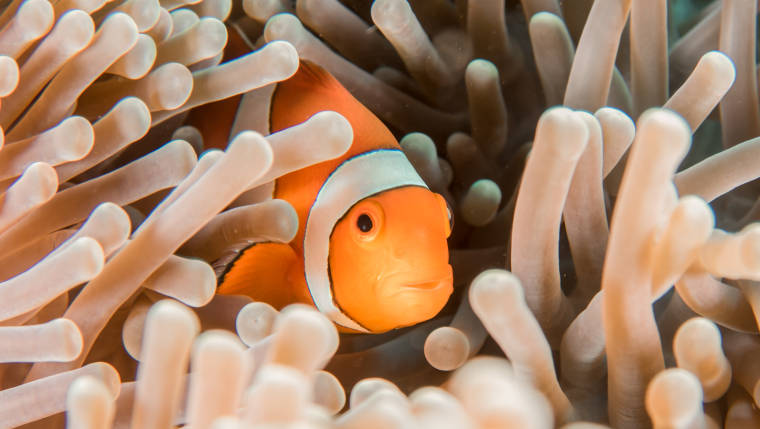
The partnership between clownfish and sea anemones is one of the most iconic in the natural world. A recent study has revealed that clownfish adjust their growth to their environments.
In a series of lab experiments, our scientists paired clownfish with anemones of various sizes to investigate how the sizes of both were affected. Read the fascinating findings.
How we’re connecting children with the past

Museum visitors can often feel disconnected from historical sites and objects when viewing them out of context or in display cabinets.
That's why we developed a unique video game, where players journey back to Hadrian's Wall, with our partners at the Vindolanda Trust. Our aim was to open up the past to young people and encourage them to engage with history through a different learning environment.
Making roads safer with statistics

We’re working to reduce death and injury on our roads through research that’s helping predict collision hotspots around the world.
Our experts have developed and applied novel Bayesian statistical methods to create software for predicting traffic collision hotspots and evaluating site-based road safety measures in a bid to reduce casualty rates.
Saving the Galapagos ‘Fantastic Giant Tortoise’ from extinction
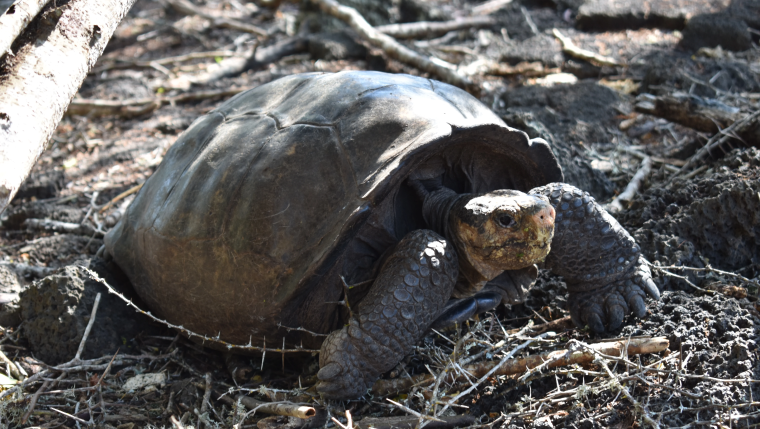
Exciting new genetic research has revealed that the Galapagos giant tortoise Chelonoidis phantasticus is not extinct.
After a female tortoise was found living on Fernandina Island in 2019, an international research team sequenced the genome and compared it to that of the only known specimen of the Fernandina Island Galapagos ‘Fantastic Giant Tortoise’ found in 1906. Discover what this means for the future of the species.
Here's how websites are breaching tracking policies

Did you know any device connected to a network can leak data about its users and environment? Online tracking enables companies to collect data, which could be used for personalised offers.
Our researchers are exposing the alarming realities of online tracking. Read on to find out just how many websites are breaching regulations when it comes to your data.
How we’re putting the sunshine in sunny-side-up eggs

We all know getting enough of the ‘sunshine vitamin’ can help keep our bones, teeth and muscles healthy. But what happens when we don’t get enough?
Vitamin D deficiency is particularly common during the winter months - when sunlight and daylight hours are reduced. Discover why you may have spotted our logo on the lid of a box of Happy Eggs thanks to our recent study.
Moses Roper: Our missed opportunity to end slavery sooner
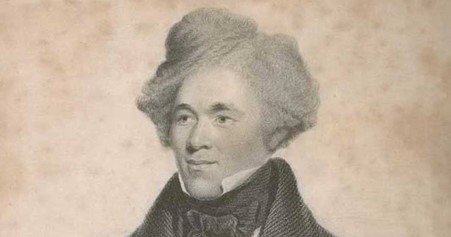
In the 1800s, Moses Roper, who had escaped enslavement in the US, was a well-known public figure. The importance of his abolitionist work in both the U.S and Europe is largely unknown, until now.
Over the years, Roper hasn't received the same kind of attention in the history books as some of his peers. But here at Newcastle University we are shining a light on his pioneering work to end slavery.
Designing our cities to tackle global health issues

It took a global pandemic to bring into sharp focus the deficiencies in how we’ve created – and lived in – our cities over the last half a century. Professor of Urban Design for Health, Tim Townshend, believes creating healthier cities is within our grasp.
Now, in his book, Healthy Cities: Design for Well-being, Prof Townshend explores how our built environment contributes to health and well-being problems. In this Q&A, he explains why we must meet the challenge of building for a better life.
An aspirin a day keeps the bowel doctor away
 Over the course of two decades, a thousand patients across the world took part in a study that required them to take two aspirins every day, a food supplement or a placebo. They all had Lynch syndrome, an inherited condition that increases their risk of colorectal cancer - such as colon cancer or endometrial cancer.
Over the course of two decades, a thousand patients across the world took part in a study that required them to take two aspirins every day, a food supplement or a placebo. They all had Lynch syndrome, an inherited condition that increases their risk of colorectal cancer - such as colon cancer or endometrial cancer.
The findings were of the study were clear. Learn how aspirin almost halved the number of people diagnosed with cancer in the group.
Fertility apps and cybersecurity: who can access your data?

Fertility apps house the sensitive data of millions of users globally. Read our blog from Dr Maryam Mehrnezhad on the risks surrounding fertility app users’ privacy.
Examining the cybersecurity, privacy, and bias in period-orientated technologies is vital. Such technologies are booming, but they have the potential to cause complex harm. Find out more about the controversial history of these apps and the work our researchers are doing on cyber security.
You might also like...
- Our Strengths: Find out more about our research and how we're pushing boundaries
- Our Research Impact: Our projects are helping make the world better for everyone
- NUCoREs: We deliver important research through a growing portfolio of Newcastle University Centres of Research Excellence (NUCoREs)

